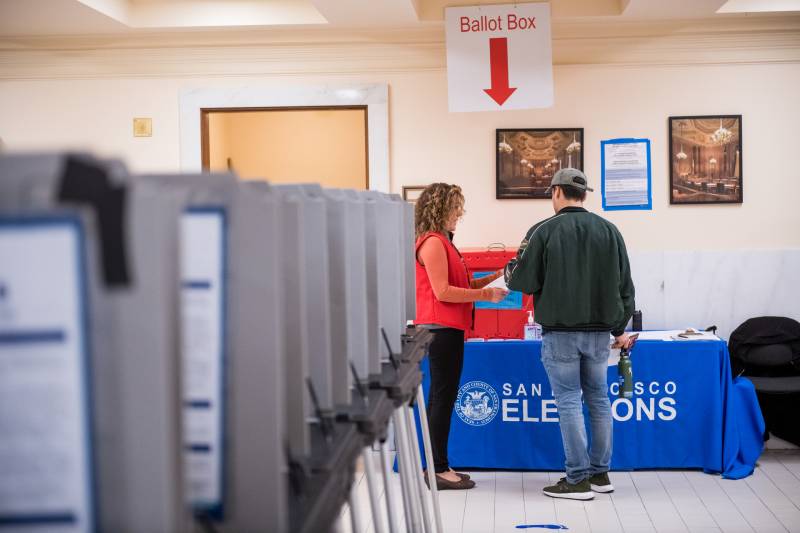But this year, Lopez will be at home for the election. The person-to-person contact that he enjoyed at the polls is now a potential threat to his health. The risk of contracting COVID-19 is leading many seniors to follow suit, shrinking the most reliable pool of election day poll workers.
“I just felt, as I looked at (Election Day) and thought about it for several weeks, that I just didn’t see how I could keep myself safe,” Lopez, 67, said. He assessed his risk of COVID-19 this way: “If I get it, I’m probably not going to make it.”
California is urging voters to cast their ballots by mail this fall, but a shortage of poll workers could threaten counties’ ability to conduct a safe and successful election for those who want or need to vote in-person.
In order to avoid a poll worker shortage that could result in long delays on election day, state and local officials are sounding the alarm in hopes of recruiting a new cavalry of poll workers.
“We’re always worried, but I’m specifically worried this election,” said Mayank Patel, Division Manager for Poll Worker and Field Support at the San Francisco Department of Elections.
“So far we’ve noticed an increase in the number of folks who basically say they’re not able to serve anymore,” Patel said. “A common reason is due to COVID or they fall into the high risk category.”
In response to a July survey of county election offices, Alameda, Napa, San Francisco, San Mateo, Santa Clara and Solano counties told the Secretary of State’s office that they need help finding poll workers. Marin and Sonoma said they “maybe” would require assistance, while Contra Costa declined the offer.
Scott Konopasek, Contra Costa County’s Assistant Registrar of Voters, said recruitment typically picks up in September and October, but that many long-time poll workers have opted out over the summer.
“Commitments are bleeding off a little bit and fewer people are saying that they’re interested in working,” Konopasek said. “Candidly, it’s kind of an ethical dilemma for us to ask our faithful senior volunteer poll workers to work at in-person voting locations on Election Day.”
James Gillivan, of Walnut Creek, was one of the longtime poll workers who decided against participating “because of the COVID, specifically.”
“I’m 80-years-old and I’m immune impaired,” Gillivan said, whose medication for rheumatoid arthritis affects his immune system. “I just said this isn’t worth it to me to take the risk. Otherwise, I’d do it in a heartbeat.”

